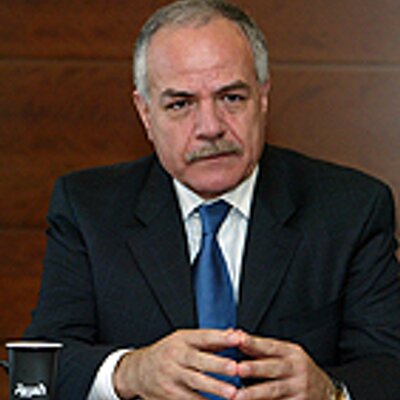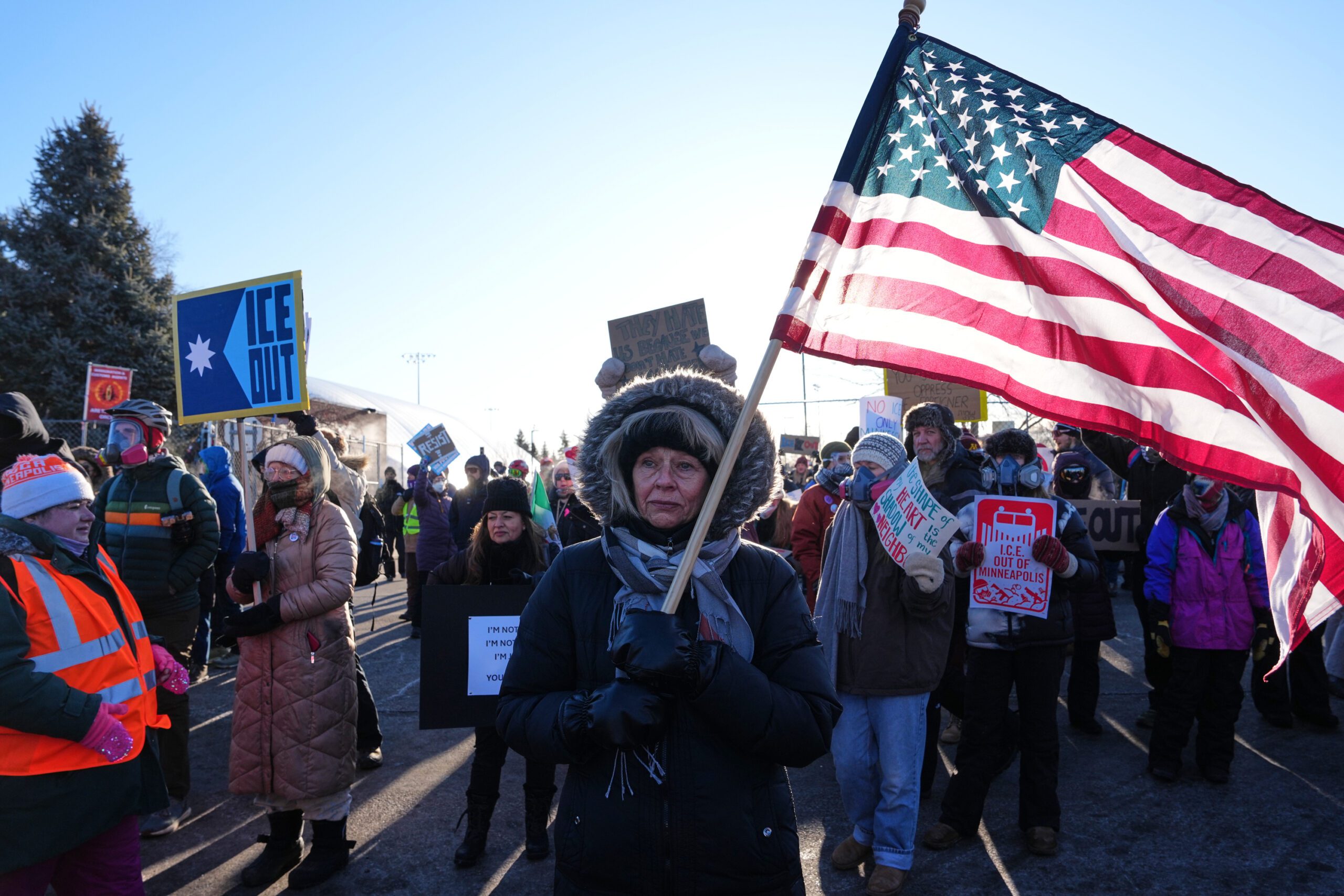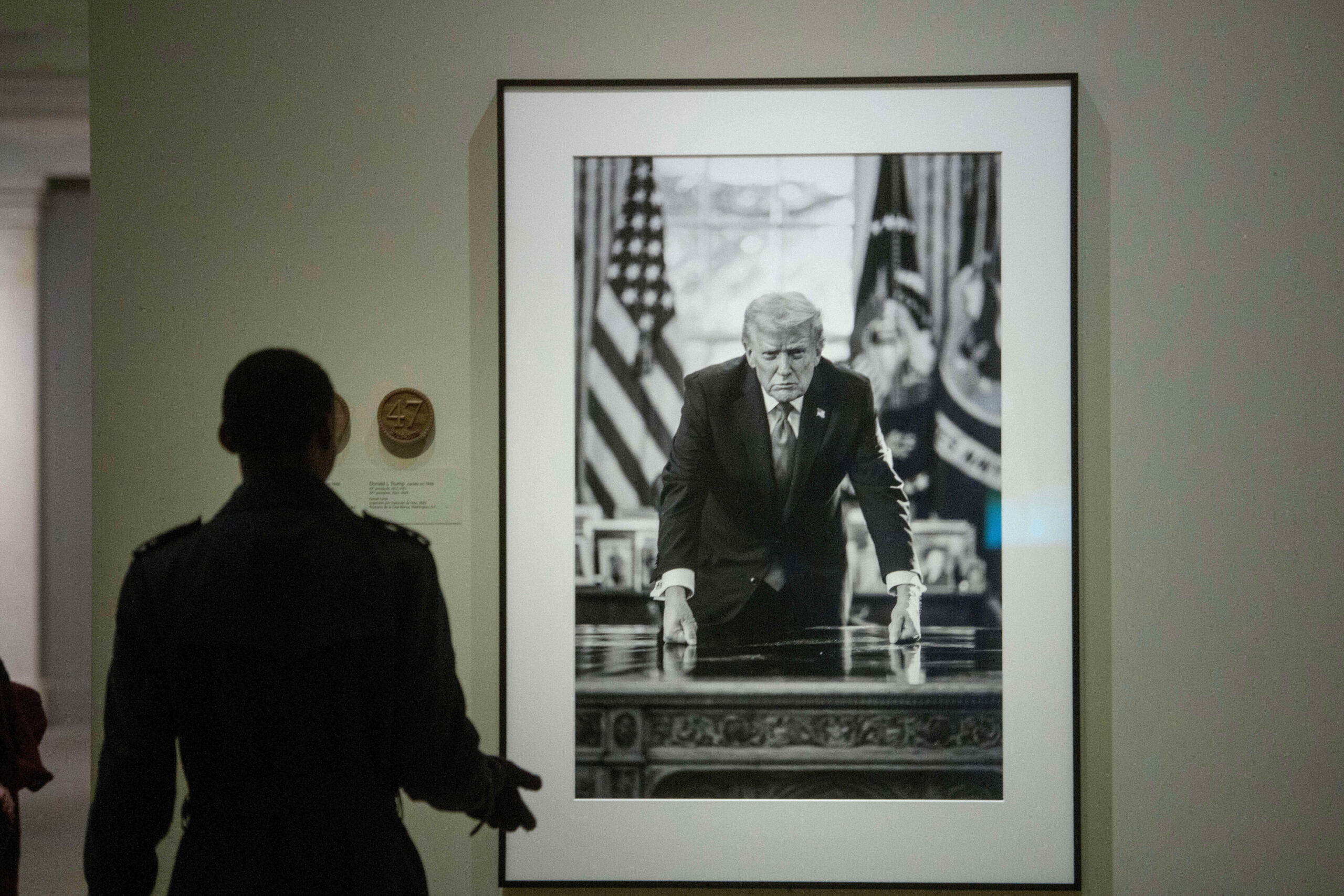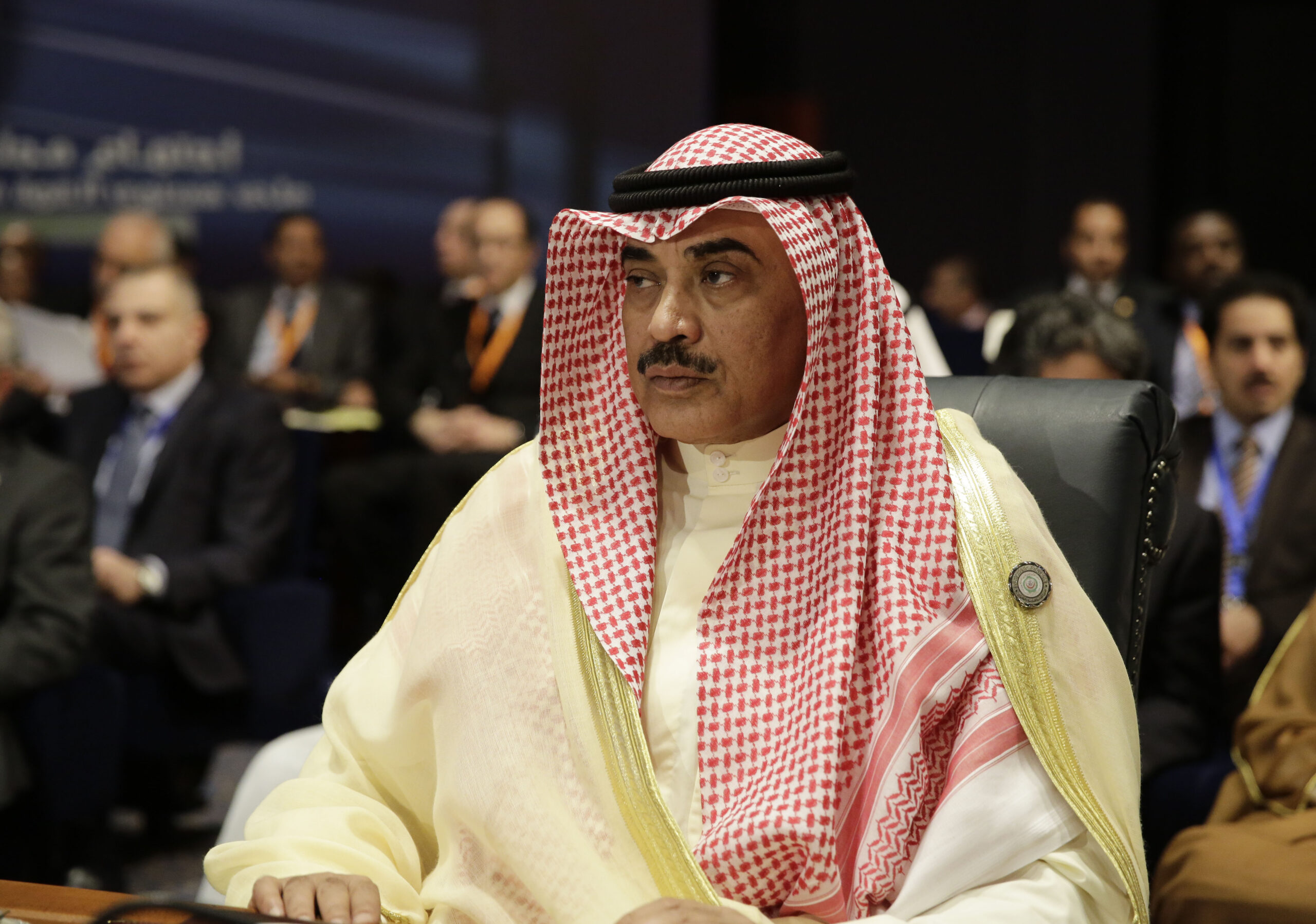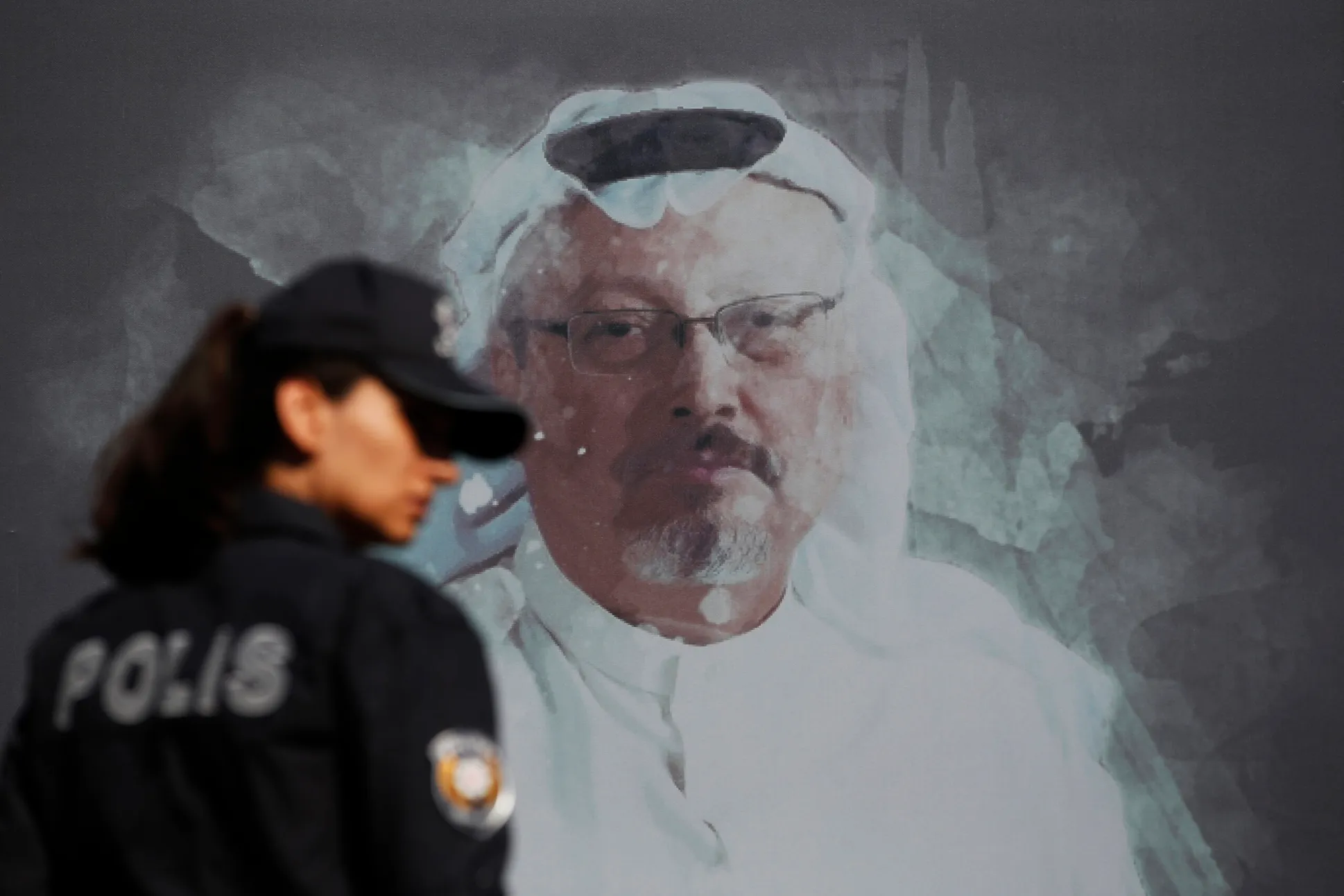تنصيب ترامب وإعادة تشكيل الاصطفاف القومي في الولايات المتحدة
تشير التحولات العميقة في المجتمع الأمريكي والاقتصاد السياسي العالمي إلى أن تحالف ترامب القومي الجديد قد يصمد، وقد يكون له تداعيات على شركاء الولايات المتحدة في الخليج.
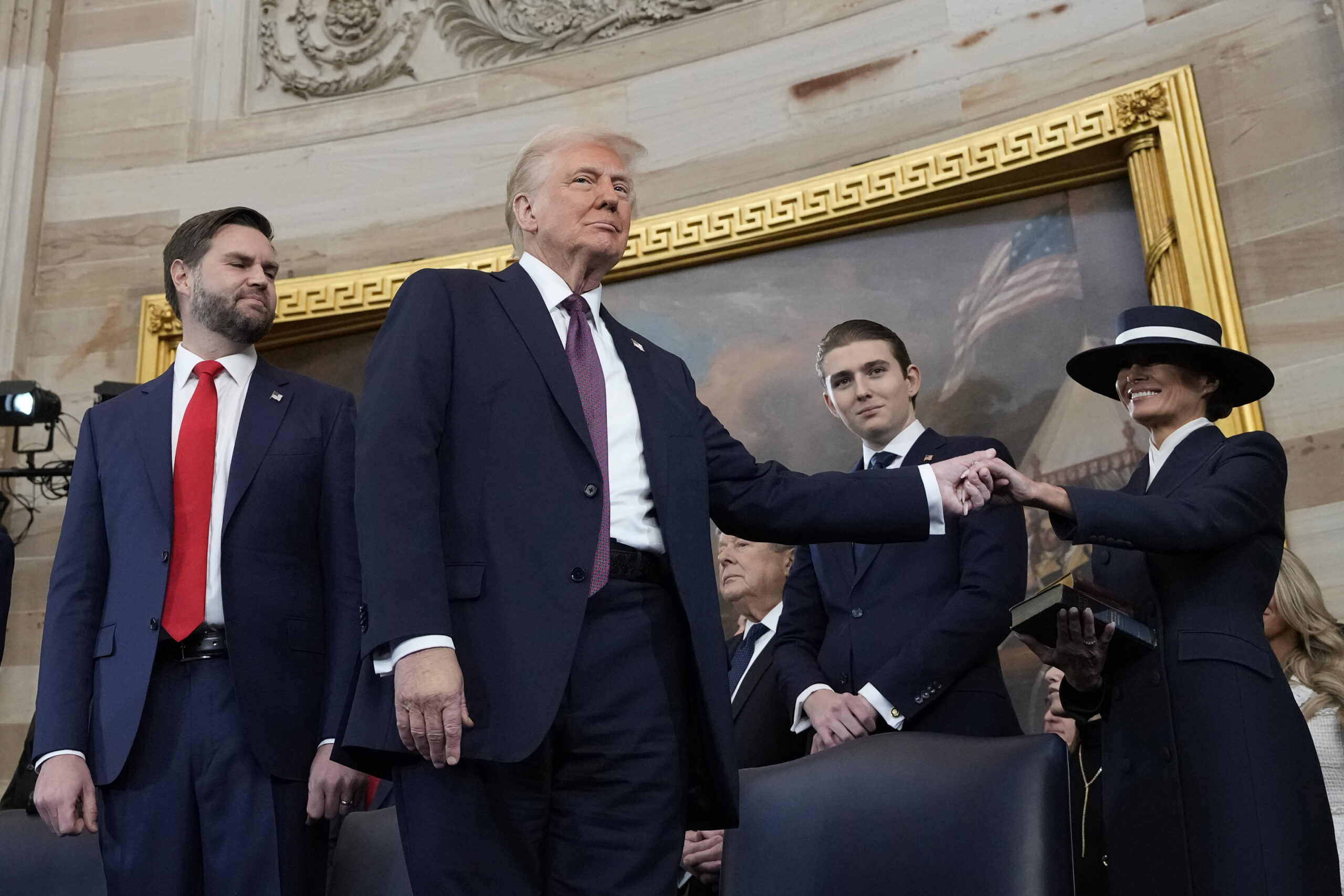
The sweeping electoral victory of Donald J. Trump returned him to the presidency January 20, this time in a much stronger position. He is in complete control of a Republican Party that now boasts a narrow majority in both houses of Congress and wields an ideological edge on the Supreme Court. Thus, Trump has within his grasp all three branches of government: a stunning achievement in the context of the United States’ divided politics.
This overwhelming institutional advantage is matched by a popular mandate. The election demonstrated a rightward shift across all demographics. Trump won not only the electoral college but the popular vote. His political coalition is made more potent, and potentially enduring, by its diverse nature: His candidacy attracted not only aإن الفوز الانتخابي الكاسح الذي حققه دونالد ترامب قد أعاده لسدة الحكم في 20 يناير/كانون الثاني، ولكن هذه المرة في وضع أقوى بكثير من إدارته الأولى. هذا لأنه الآن بات مسيطراً على الحزب الجمهوري بشكل كامل، والذي يتمتع الآن بأغلبية ضئيلة في كلا مجلسي الكونجرس. ويمتلك ترامب تفوقاً أيديولوجيا، ولديه مناصرين في المحكمة العليا، التي باتت محافظة في تفسيرها لقوانين الدستور الأمريكي. وهكذا، أصبحت فروع الحكومة الثلاثة في قبضة ترامب، وهو إنجاز مذهل في سياق سياسة الولايات المتحدة التي طالما تتسم بالانقسام.
يقابل هذا التفوق المؤسسي الساحق تفويض ودعم شعبي واسع. فقد أظهرت الانتخابات تحولاً نحو اليمين عبر جميع الشرائح الاجتماعية والكتل الديمغرافية. لم يقتصر فوز ترامب على المجمع الانتخابي، بل فاز أيضاً بالتصويت الشعبي. وقد أصبح تحالفه السياسي أكثر قوة، وربما أكثر ديمومة، بسبب طبيعته المتنوعة، فلم يقتصر ترشيحه على اجتذاب غالبية الأمريكيين البيض، وإنما اجتذب أيضاً دعماً لا يستهان به من الأقليات. فقد حصل على أصوات من اللاتينيين أكثر من أي مرشح رئاسي جمهوري آخر، كما حصل على دعم متزايد من اليهود والعرب على حد سواء.
لعل الولايات المتحدة لم تر في تاريخها المعاصر رئيساً يمتلك كلا من السلطة الشعبية والمؤسسية في آن واحد، ربما أكثر من أي رئيس أمريكي آخر، ولن يتردد في استخدامهما لتحقيق طموحه ورؤيته. لقد خاض ترامب، وهو شعبوي بارع، الانتخابات الرئاسية ضد الحكومة الفيدرالية، متعهداً بإجراء تغييرات جذرية في ثقافة وتنظيم جهاز الخدمة المدنية والقوات المسلحة. إن تعيين أشخاص من خارج الوسط السياسي في الحكومة، وبعضهم يفتقر للخبرة في السياسة العامة، ولديهم أجندات شخصية وأيديولوجية قوية، يزيد من احتمالية حدوث تغيير جذري. على سبيل المثال، يتولى الميلياردير إيلون ماسك إدارة وكالة الكفاءة الحكومية، ويطمح لتقليص القوى العاملة الفيدرالية، وتوظيف أصحاب المصالح من القطاع الخاص لإدارة السياسة العامة. كما يقوم شعبويون، مثل روبرت كينيدي الابن، الذي تم تعيينه لإدارة وزارة الصحة والخدمات الإنسانية، والشخصية التلفزيونية ومذيع قناة فوكس نيوز السابق بيت هيجسيث، الذي تم للتو تأكيد تعيينه وزيراً للدفاع، بالترويج لحملات ثقافية من شأنها أن تؤثر على استقرار وأداء الخدمات الاجتماعية والجيش.
وفي حين أنه من غير المرجح أن تتحقق الأهداف القصوى لهذا التمرد الشعبوي في الحكم، إلا أن نطاق وسلطة التدخل قد توسعتا بسبب التفويض الانتخابي الممنوح لترامب، على الرغم من نيته الواضحة لتقليص دور وسلطة المؤسسة السياسية التقليدية [The establishment]، ومجاهرته بتجاهل حتى دستور الجمهورية الأمريكية. وقد تضاءلت اليوم بشكل كبير الضمانات التي يوفرها نظام الحكم المنقسم، والمقاومة المحدودة من جانب الحزب الجمهوري، والضوابط المؤسساتية التي ميزت فترته الرئاسية الأولى.
لقد تغيرت أمريكا-وكذلك العالم
يأتي هذا الوعد بالتغيير الجذري وسط توجهات محلية ودولية تفسر فاعليته وتعززه. فعلى الصعيد المحلي، برز هذا المسار القومي والشعبوي جزئياً نتيجة لاثنين من الإخفاقات السياسية الجسيمة: حرب العراق عام 2003، والأزمة المالية العالمية عام 2008. وقد ساهم كلا الحدثين في تشكيل السياسة الخارجية للولايات المتحدة بطرق جوهرية، الأمر الذي قلل من الرغبة في الانخراط في مزيد من الالتزامات الخارجية، وقلل من مكانة الولايات المتحدة في الخارج. ويفيد كلا الإخفاقين بانعدام الثقة الشعبية العميقة في المؤسسة السياسية والمالية – أي انعدام الثقة في النخب التي ظهرت في الانتخابات منذ ذلك الحين. وفي الآونة الأخيرة، لم يؤدِ عجز التدخل العسكري الأمريكي لعقود من الزمن، والانسحاب الفوضوي من أفغانستان، وصدمة جائحة فيروس كورونا، إلا لتسريع هذه التوجهات القومية والشعبوية وترسيخها. يعِد تحالف “أميركا أولاً” [ماجا] الجديد في عهد ترامب باعتماد قيود أكثر صرامة على الهجرة والتجارة الخارجية، ويُظهر شكوكاً عميقة في التدخلات العسكرية الخارجية والالتزامات متعددة الأطراف.
ولعل ما يعزز هذه التجارب والتحولات في الولايات المتحدة هو السياق العالمي المحيط بها. ففي هذه المرحلة المتأخرة من العولمة، والتفاوت المتزايد في الدخل، يتحدى القوميون السلطة القائمة أو يصلون إليها في أوروبا وأمريكا اللاتينية وآسيا، والكثير منهم من خلال موجات شعبوية زعزعت من استقرار الحكم الديمقراطي. وفي غضون ذلك، يعمل التغيير التكنولوجي على إحداث اضطرابات في مجالات المعلومات والإعلام والاتصالات، كما يُحدث تحولات في أسواق الطاقة، التي تغذي مختلف اقتصادات العالم. ويبدو أن الحكم في مثل هذه الظروف يميل نحو المزيد من المركزية في السلطة وصنع القرار. ويمكن ملاحظة ذلك، حتى داخل الولايات المتحدة، التي تتسم عادةً باللامركزية، حيث تمنح الأحكام القانونية صلاحيات أوسع للرئاسة، ويطالب كل من اليمين واليسار على حد سواء بإجراءات تصحيحية أقوى من الدولة، في الوقت الذي تزداد فيه جرأة المصالح الخاصة على التدخل بشكل رسمي وعلني في صنع السياسات.
في ظل إدارة الرئيس السابق جوزيف بايدن، كان ثمة محاولات جديدة في السياسة الصناعية، والتدخل في أسواق الطاقة من خلال احتياطي البترول الاستراتيجي، وتشجيع استثمارات الطاقة الخضراء، والعودة للصناعات التكنولوجية المحلية الجديدة من خلال قانون خفض التضخم وقانون الرقائق الإلكترونية والعلوم (CHIPS). في حين تعد إدارة ترامب بتقليص حجم الحكومة الفيدرالية، فإنها في الوقت نفسه تمنح مكانة بارزة لطبقة رجال الصناعة المفضلين لها، مع احتمال دعمهم بتعريفات جمركية جديدة صارمة ضد المنافسين. من المرجح أن تكون النتيجة سياسات تجارية أكثر حمائية تُضعف النظام الدولي للتجارة العالمية، الذي اعتمد لفترة طويلة على الاتفاقيات متعددة الأطراف. كما أن النهج نفسه في تجاهل المؤسسات الأمنية متعددة الأطراف سيشكل اختباراً لمنظمات مثل الأمم المتحدة وتحالفات أمنية مثل حلف الناتو.
في هذا السياق، من المرجح أن يزداد ميل القوى الكبرى والمتوسطة لاختبار القواعد العالمية التي حالت دون التوسع الإقليمي، وهو تحدٍّ تطرحه بالفعل كل من روسيا وإسرائيل. بالتزامن مع ذلك، قد تؤثر المنافسة على الابتكارات التكنولوجية وإقامة ممرات جديدة للتجارة والتكنولوجيا على استقرار سلاسل التوريد، مما قد يؤدي إلى تفتيت الأسواق المفتوحة، لا سيما في ظل الصراع بين الولايات المتحدة والصين.
الشركاء الخليجيون وإعادة تشكيل الاصطفاف القومي
هذه التغييرات – المتمثلة في مركزية السلطة، والتحول نحو السياسات القومية من خلال النزعات الأحادية أو الحمائية، وحالة عدم اليقين التي يفرضها الشعبويون، والبيئة المعلوماتية الجديدة على الحوكمة – تبدو واضحة في إدارة ترامب الجديدة. لكن هذه التغيرات تستمد قوتها من ديناميكيات اقتصادية واجتماعية سياسية أكثر تنظيماً وأوسع انتشاراً وديمومة. ربما تجلب الانتخابات المستقبلية للسلطة ائتلافًا سياسيا مختلفاً بمفاهيم ثقافية مختلفة. ولكن من غير المرجح أن تعود الأممية الليبرالية التي حكمت السياسة الأمريكية حتى الآن وشكلت النظام العالمي. فقد وصلت النزعة القومية إلى الولايات المتحدة بشكل أو بآخر.
تداعيات ذلك على دول الخليج كبيرة. فمن بعض النواحي، قد يكون توجه تركيز صنع القرار والسلطة في صالح الأنظمة الملكية، التي تتميز أساساً بمركزية الحكم، وقد تفضل وساطة وإدارة أكثر شخصنة. سيكون هناك أمل في التوصل لصفقات فعالة يمكن تحقيقها من قبل محاورين متفانين ومتمكنين ذوي أهداف وطنية واضحة، ولا تثقل كاهلهم الالتزامات المثالية ومتعددة الأطراف. بالفعل، ساعد تهديد ترامب باستخدام القوة الأميركية بطرق حازمة في توحيد الخصوم المترددين إلى حد ما في إسرائيل وغزة ولبنان. وقد يفضي الطموح المفتوح لتوسيع العقوبات الاقتصادية ضد إيران إلى حل غير عسكري للحد من طموحات إيران النووية والإقليمية.
وفي الوقت نفسه، قد يكون صعود جماعات المصالح القوية في قطاع التكنولوجيا، وخاصة في مجال الذكاء الاصطناعي والعملات المشفرة، موضع ترحيب في دول الخليج التي تؤيد هذه الصناعات الجديدة. كما أن الأهداف التجارية والقومية الجديدة قد تخفف من بعض القيود المفروضة على المبيعات العسكرية، وتسهل دخول السعودية في مجال تطوير الطاقة النووية لأغراض مدنية. في المقابل، قد تُعرّض النزعة التجارية الحمائية المتنامية في الولايات المتحدة مصالح الخليج للخطر. إن فرض التعريفات الجمركية الموحدة قد يضر بدول الخليج أقل من غيرها، ولكن هناك صناعات محددة، مثل الألمنيوم في البحرين، عانت بالفعل في ظل سياسة التعريفات الجمركية. كما أن طموحات إدارة ترامب الرامية لتوسيع صادرات النفط الأميركية ربما تهدد المحاولات الخليجية الرامية لتحقيق الاستقرار في أسعار النفط المرتفعة نسبياً – وهو المتغير الحاسم في عملية التحول الاقتصادي في هذه الدول – على الرغم من أن ترامب قد يجد صعوبة في دفع استثمارات أكبر نحو قطاع النفط.
كيف سيؤثر التراجع المستمر في نظام التجارة العالمية المفتوح، إلى جانب تصعيد العقوبات الأميركية ضد منافسين استراتيجيين كالصين، على دول الخليج، لا سيما الإمارات العربية المتحدة، التي تعتمد في نموها الاقتصادي على دورها كمركز تجاري عالمي؟ من المرجح أن يؤدي توجه الولايات المتحدة نحو شراكات ثنائية أكثر تحديداً أو شراكات مستهدفة، بدلاً من الأنظمة العالمية الموحدة القائمة على قواعد متعارف عليها، إلى تسريع نهج دول الخليج في بناء شراكات استراتيجية والاعتماد على التكنولوجيا الحديثة وممرات التجارة والاتصالات.
قد يكون لهيمنة القوى العظمى الناشئة، وما يقابلها من إضعاف للنظام العالمي القائم على القواعد القانونية، بما في ذلك حصانة الحدود، تداعيات على أمن الدول الصغيرة في الخليج. من المرجح أن يكون إضعاف نفوذ إيران موضع ترحيب لدى دول الخليج العربية، لكن إسرائيل، وإلى حد ما تركيا، برزتا كلاعبين قويين قد تتسبب طموحاتهما الإقليمية في إثارة التنافس على النفوذ مع دول الخليج. وفي سياق الولايات المتحدة الأكثر مزاجيةً واهتماماً بمصالحها الأنانية، تتعاظم المخاوف الأمنية الناجمة عن إضعاف حصانة الحدود، وما يرتبط به من إضعاف للنظام العالمي القائم على القانون.
هناك أمر واضح: في ظل نظام عالمي تُشكّله دول قوية ومتنافسة، ومع قيادة أميركية أكثر مركزية، ستصبح العلاقات الشخصية ذات أهمية قصوى. وقد يكون التواصل الواضح، وعرض السياسات والممارسات ذات المنفعة المتبادلة، عاملين حاسمين في إنجاح المفاوضات، وتحقيق نتائج إيجابية لهذه الشراكات العالمية طويلة الأمد.majority of white Americans but also sizeable support from minority groups. He won more votes from Latinos than any other Republican presidential candidate and increased his backing from both Jews and Arabs.
This consolidation of both popular and institutional power is wielded by someone who, perhaps more than any other U.S. president, is unafraid to use it. A consummate populist, Trump ran against the federal government, pledging to make seismic changes in both the culture and organization of the civil service and armed forces. The appointment to the Cabinet of outsiders, some unexperienced in public policy and with forceful personal and ideological agendas, increases the potential for radical change. Tech billionaire Elon Musk is leading the Department of Government Efficiency, looking to slash the federal workforce and recruit private sector interests to run public policy. Populists such as Robert F. Kennedy Jr., tagged to run the Department of Health and Human Services, and former FOX personality Pete Hegseth, who was just confirmed to head the Pentagon, are promoting cultural crusades that could impact the stability and functioning of social services and the military.
While the maximalist aims of this populist insurgency in governance are unlikely to be achieved, the scope for intervention is increased by the election mandate granted to Trump, despite his clear intent to overturn the establishment and avowal to disregard even the Constitution of the republic. Today, the protections of divided government, a limited Republican Party resistance, and institutional safeguards that characterized his first turn in leadership are all significantly diminished.
America – and the World – Has Changed
The promise of radical change comes amid both domestic and international trends that explain and reinforce its potency. Domestically, this nationalist and populist trajectory emerged in part due to two massive political failures: the 2003 Iraq War and 2008 global financial crisis. Both have shaped U.S. foreign policy in fundamental ways, decreasing the appetite for foreign commitments, and diminishing U.S. stature abroad. And both have informed the deep popular mistrust of the political and financial establishment – a mistrust of elites that has since characterized elections. More recently, the impotence of the United States’ decades-long military intervention and chaotic withdrawal from Afghanistan and the trauma of the coronavirus pandemic only served to accelerate and solidify these nationalist and populist trends. The new “America-first” coalition under Trump is promising to embrace more forceful limits on foreign immigration and trade and exhibits deep skepticism of foreign military entanglements and multilateral commitments.
These U.S. experiences and transformations are buttressed by the global context in which they are occurring. In this stage of late globalization and growing income disparity, nationalists are challenging or coming to power in Europe, Latin America, and Asia, many through a wave of populism that is destabilizing democratic governance. Meanwhile, technological change is disrupting information, media, and communication and transforming the fundamentals of the energy markets that fuel economies. Governance in these conditions appears to be favoring more centralized power and decision making. This can be seen even within the normally decentralized United States, where legal rulings are empowering the presidency and both the right and the left are demanding stronger remedies from the state while simultaneously emboldening private interests to more formally and publicly intervene in policymaking.
Under the administration of former President Joseph R. Biden Jr., there were new attempts at industrial policy, intervening in energy markets through the strategic petroleum reserve, and encouraging green energy investments and a domestic return of new tech industries through the Inflation Reduction Act and CHIPS and Science Act. While the Trump administration is promising a reduction in the size of the federal government, it is likewise promising a more prominent seat at the table for favored industrialists potentially backed by aggressive new tariffs against competitors. The outcome is likely to be more mercantilist policies that weaken the international system of global trade, long sustained by multilateral agreements. A similar disregard for multilateral security institutions will test bodies like the United Nations and security pacts like NATO.
In this context, the appetite of great and medium powers to test the global norms that have prevented regional expansionism will likely grow: a challenge already posed by Russia and Israel. Meanwhile, competition over new technology and the establishment of new trade and tech corridors could disrupt supply chains and fragment open markets, especially when informed by the great power rivalry between the United States and China.
Gulf Partners and the Nationalist Realignment
These changes – the centralization of power, shift toward nationalist policies through unilateralism or mercantilism, and unpredictability that populism and the new information environment bring toward governance – are all pronounced in the new Trump administration. But they are fed by more systemic economic and sociopolitical dynamics that are widespread and enduring. A future election may bring to power a different political coalition with a different cultural expression. But it is unlikely to return the liberal internationalism that has heretofore governed U.S. policy and shaped the global order. Nationalism, in one form or another, has come to America.
The implication for Gulf partners is significant. In some ways this centralization of decision making and power will work to the advantage of monarchies, which are themselves centralized and may prefer more personalized mediation and governance. There will be a hope for the effective dealmaking that can be achieved by focused and empowered interlocutors with clear national objectives and less encumbered by multilateral and idealist commitments. Already, the threat of Trump to wield U.S. power in forceful ways has helped to line up somewhat reluctant adversaries in Israel, Gaza, and Lebanon. The open ambition to expand economic sanctions against Iran may yet yield a nonmilitary solution to limit Iran’s nuclear and regional ambitions..
At the same time, the elevation of powerful interest groups in the tech sector, notably in artificial intelligence and cryptocurrencies, may be welcome in Gulf states that have been championing these new industries. Commercial and new nationalist objectives may also ease some restrictions on military sales and facilitate Saudi Arabia’s entrance into civilian nuclear development. Yet in other ways, a more mercantilist United States could threaten Gulf interests. A uniform imposition of tariffs may damage Gulf countries less than others, but there are particular industries, such as aluminum in Bahrain, that have already suffered under tariff policy. The Trump administration’s ambitions to expand U.S. oil exports may threaten Gulf attempts at stabilizing relatively high oil prices – the critical variable in their economic transitions – though even Trump may find it difficult to compel greater investments in the oil sector.
And what will the further weakening of an open global trading regime, alongside more tactical U.S. sanctions against strategic adversaries, such as China, do to Gulf countries, such as the United Arab Emirates, which have built their futures on being open commercial hubs? A U.S. move toward more discrete bilateral or targeted partnerships – rather than uniform rules-based global regimes – will likely hasten the Gulf approach of cultivating strategic partnerships and relying on new technology, trade, and communication corridors.
The emerging predominance of great powers and the corresponding weakening of the rules-based global order, including the inviolability of borders, may have implications for the security of the small states of the Gulf. The weakening of Iran’s reach is likely to be welcome among Gulf Arab states, but Israel and, to some degree, Turkey have emerged as powerful players whose regional ambitions may spark rivalries with Gulf states for influence. Security concerns prompted by this weakening of inviolability of borders and related weakening of the rules-based global order are magnified in the context of a more capricious and self-interested United States.
One thing is clear: Within a global order shaped by powerful, competitive states, and a United States with a more centralized leadership, personal ties will become paramount. Clear communication and the presentation of mutually beneficial policies and practices may define successful negotiations and positive outcomes for these long-standing global partners.
الآراء الواردة في هذا المحتوى تعبّر عن وجهات نظر الكاتب/ة أو المتحدث/ة، ولا تعكس بالضرورة آراء معهد دول الخليج العربية أو موظفيه أو مجلس إدارته.

